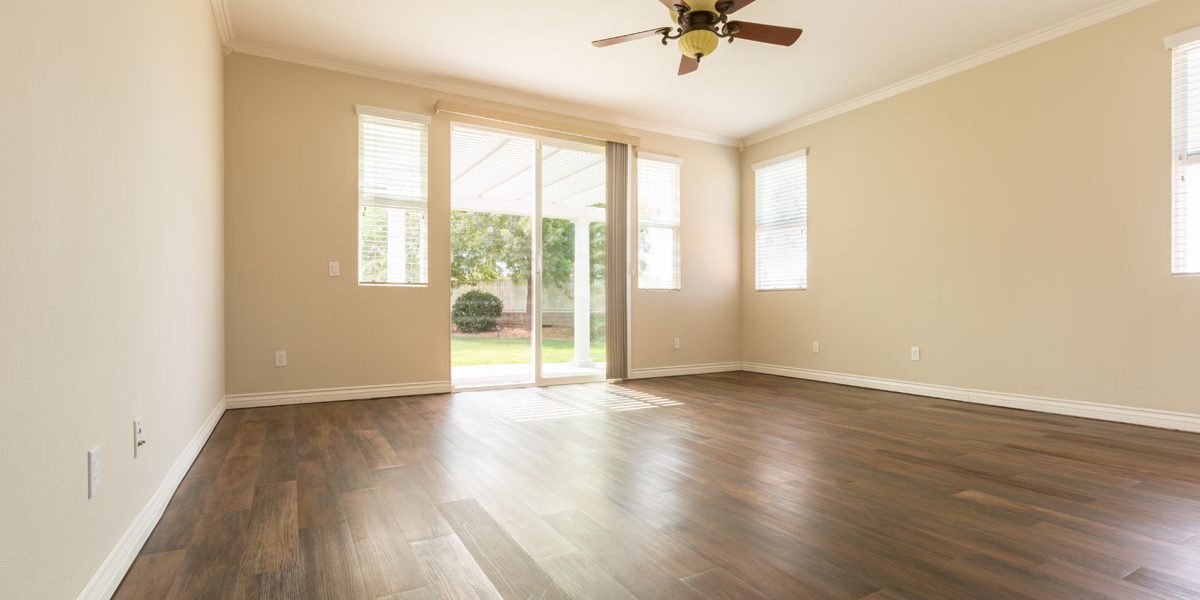Both engineered hardwood and solid hardwood flooring are high-quality, natural wood products with a beauty unparalleled by synthetic floors such as laminate or wood-look vinyl plank. At surface level, engineered and solid hardwood floors appear identical.
The variations between engineered hardwood and solid hardwood start just below the surface. Engineered hardwood is made of veneer hardwood adhered over a foundation of top-quality plywood, which makes it more budget friendly than solid hardwoods. Nevertheless, solid wood flooring is made of solid hardwood walnut, oak, or maple, it is more substantial and lasts longer than engineered hardwood flooring. The core is the primary difference between engineered hardwood and solid hardwood flooring, which impacts water resistance. Both are seldom suggested for bathrooms but are occasionally used in kitchens. Keep reading to discover more concerning engineered hardwood vs. hardwood flooring, appearance, costs, and lifespan.
Solid Wood vs. Engineered Wood flooring
Engineered Wood Flooring vs. Solid Wood Flooring: Major Differences
The following are some of the major differences between engineered wood flooring and solid wood flooring.
Engineered Hardwood Flooring
Engineered hardwood’s core is usually top-quality plywood or HDF. The surface is a slight layer of hardwood; a veneer adhered with bonding agents to the plywood core. The types of woods usually used for surfacing engineered hardwood flooring comprise pecan, hickory, birch, maple, oak, American beech, cherry, walnut, and pine. The plywood’s cross-ply veneer improves the floor’s structural integrity. Meaning there’s less tendency for the floor to split, swell, or cup when wet. Engineered hardwood flooring is a DIY-friendly installation that lasts twenty to thirty years.
Solid Hardwood Flooring
Each solid hardwood plank is a singular piece of wood, giving it the durability to last up to a century or more. Tongues and grooves are milled in, and sealers and/or stains could be applied to the surface. Unfinished surfaces of solid hardwood flooring underperform against water since the woodgrain runs in the same direction and promotes splitting and cupping. Finished solid hardwood flooring, on the other hand, resists moisture well. Installing hardwood flooring is seldom a DIY-friendly project since it requires professional tools to address tricky sanding, finishing, and spatial arrangement of the boards.
Appearance
Engineered Hardwood Flooring
This type of flooring is primarily sold pre-finished and there is a smaller assortment of colors available and species than solid hardwoods. Engineered hardwood floorboards are predisposed to be wider than solid hardwood. A lot of pre-finished engineered hardwood floorings have somewhat beveled edges, creating subtle grooves between boards.
Solid Hardwood Flooring
This type of flooring overall has very tight joints between their boards, and there is a wider extent of colors and species than its flooring counterparts. Solid hardwood is available as both pre-finished and un-finished boards.
Cost
Engineered Hardwood
Engineered hardwood flooring is somewhat less costly than solid hardwood flooring. This flooring starts at around $4.50 per sq ft for click-lock-type planks in lower-cost wood species such as maple or oak. The typical range of this type of flooring is $4.50 to $16 per sq ft.
Solid Hardwood
Solid hardwood flooring costs differ by grade, from unrefined cabin-grade and typical-grade to the costliest select- and clear-grade woods. Grading is in reference to a wood’s appearance (blemishes, streaks, knots, and wormholes) however, not the type or quality of the wood. This type of flooring can run from $5 to $28 per sq ft. Prefinished solid hardwood flooring may be less expensive, generally from $6 to $12 per sq ft (even a little costlier than engineered hardwood flooring) due to it being finished in a factory and not on-site.
Lifespan
Engineered Hardwood
Engineered hardwood flooring typically lasts twenty to thirty years. Minute scratches can be lightly sanded out, however deep scratches that pierce through the thin veneer are challenging to fix.
Solid Hardwood
Solid hardwood typically can last thirty to fifty years and as much as one hundred years because it can be sanded down and refinished time and again. Solid hardwood flooring does require it to be kept dry, though. This type of flooring lasts significantly longer than engineered hardwood flooring, provided that it stays well-maintained.
Build a Custom Home In Arizona
Contact Hughes Development today to get an estimate for your home building project. Hughes Development builds custom homes in Mesa, Apache Wells, Mountain Whisper and more areas in Arizona.


